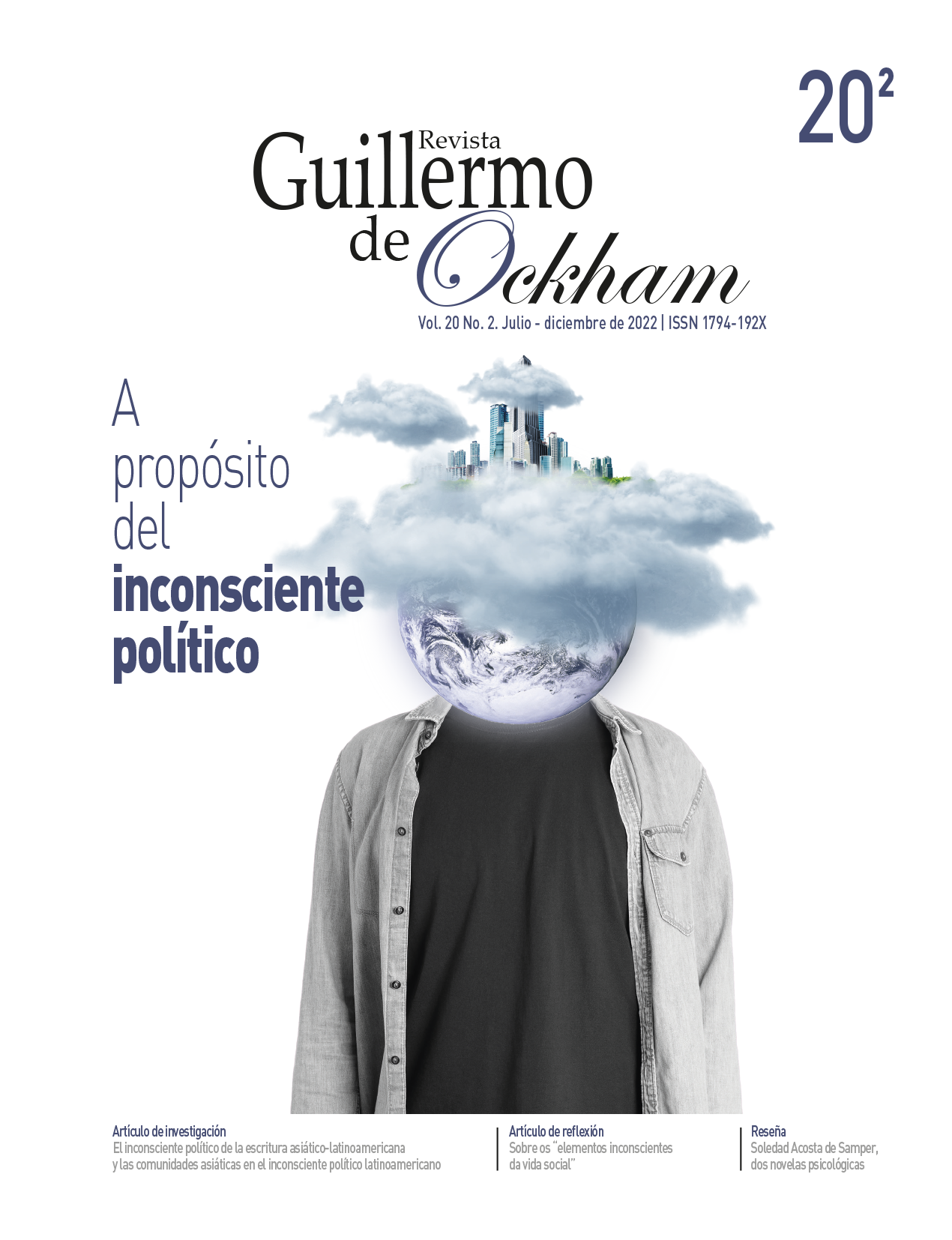The Revista Guillermo de Ockham provides an immediate and open access to its content, based on the principle of offering the public a free access to investigations to provide a global interchange of knowledge.
Unless otherwise established, the contents of this journal has a license with Creative Commons Attribution-NonCommercial-NoDerivatives 4.0 International (CC BY-NC-ND 4.0) http://creativecommons.org/licenses/by-nc-nd/4.0/
- Attribution: You must give appropriate credit, provide a link to the license, and indicate if changes were made. You may do so in any reasonable manner, but not in any way that suggests the licensor endorses you or your use.
- NonCommercial: You may not use the material for commercial purposes.
- NoDerivatives: If you remix, transform, or build upon the material, you may not distribute the modified material.
- No additional restrictions: You may not apply legal terms or technological measures that legally restrict others from doing anything the license permits.
Abstract
As Karl Marx said in the eleventh of his “Theses on Feuerbach”, “Philosophers have hitherto only interpreted the world in various ways; the point is to change it”. The urgency, as well as the truth of this statement, is undoubtedly as powerful today as when Marx first wrote it. However, as a popular catchphrase frequently cited by radical thinkers and activists, Thesis 11 has unfortunately become a relatively simplistic rejection of the theory in favor of a somewhat anti-intellectual view of praxis. Such is the danger of a wisdom expressed in a way that it can fit on a bumper sticker, a fate that Marx himself probably never imagined for this scathing remark. Marxism, after all, implies the dialectical unity of theory and practice, and Marx himself, of course, spent his life engaged in critical analysis or interpretation of modern capitalist societies, while remaining committed to the movement dedicated to changing the world. The essence of Thesis 11, in fact, lies not so much in the opposition between theory and practice, but in the connection that Marx makes between interpreting the world and changing it. Although interpretation is not an end, it is absolutely essential for any project to be able to imagine alternatives and transform the status quo. In this situation, hermeneutics inevitably acquires a political and critical importance. Arguably, it always carried such weight, but it has become more urgent in our time. Perhaps the very act of interpretation is itself also a political act, which is intimately connected with the project of criticism.
References
Colin MacCabe (1992). “Preface.” In: Jameson. The Geopolitical Aesthetic: Cinema and Space in the World System. Bloomington and London: Indiana University Press and the British Film Institute.
Eagleton, Terry (1982). Literary Theory: An Introduction. Minneapolis: University of Minnesota Press.
Jameson, Fredric (1971). Marxism and Form: Twentieth-Century Dialectical Theories of Literature. Princeton: Princeton University Press.
Jameson, Fredric (1981). The Political Unconscious: Narrative as a Socially Symbolic Act. Ithaca: Cornell University Press.
Jameson, Fredric (2009). Valences of the Dialectic. London: Verso.
Jameson, Fredric (2008). “Metacommentary.” In The Ideologies of Theory. London: Verso.
Marx, Karl (1978). Theses on Feuerbach. In The Marx-Engels Reader, 2nd ed., edited by Robert C. Tucker (New York: W. W. Norton).
Marx, Karl (2009). For a Ruthless Criticism of Everything Existing. In The Marx-Engels Reader.
Robert T. Tally Jr. (2014). Fredric Jameson: The Project of Dialectical Criticism. London: Pluto Press.
Tucker, Robert C. (1978). The Marx-Engels Reader. Ed. Norton & Company








